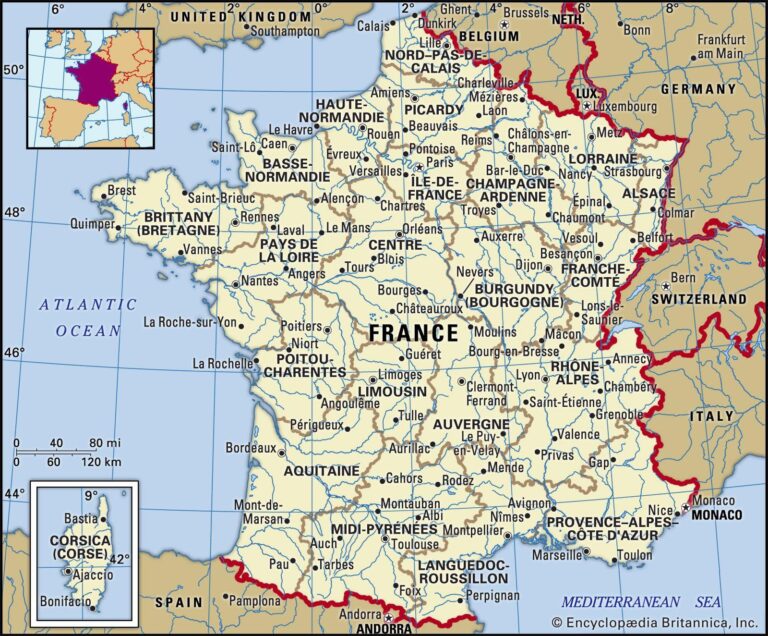France has received the green light from the European Union to implement measures offsetting pension-related charges imposed on its rail freight sector. The approval, announced by Railway PRO, marks a significant development aimed at enhancing the competitiveness of French rail freight operators by easing financial burdens linked to mandatory pension contributions. This decision aligns with broader EU efforts to support sustainable transport while ensuring fair competition within the internal market.
France Secures EU Green Light to Offset Rail Freight Pension Costs
France recently obtained the European Union’s approval to implement financial measures that will allow it to offset the significant pension costs associated with its rail freight sector. This green light empowers the French government to support rail freight operators by alleviating the burden of escalating pension expenses, which have been a growing concern for the industry’s sustainability and competitiveness. The decision confirms the EU’s recognition of the strategic importance of rail freight in achieving broader environmental and economic goals, particularly amid the push for greener transport solutions.
Key elements of the EU-approved scheme include:
- Compensation for pension-related financial obligations impacting rail freight operators.
- Support aligned with EU state aid rules to maintain market fairness.
- Measures aimed at fostering the transition to sustainable freight transport across Europe.
| Aspect | Details |
|---|---|
| Approval Date | April 2024 |
| Beneficiaries | Rail freight operators in France |
| Purpose | Offsetting pension cost charges |
| Impact | Financial relief and competitive boost |
Implications for National Rail Operators and Market Competition
France’s recent green light from the EU to compensate rail freight operators for pension-related expenses marks a pivotal shift in how national rail companies manage financial burdens while maintaining competitive parity. This move not only cushions operators against potentially crippling labor costs but also encourages investment by safeguarding profitability. As a result, smaller and regional players may find a more level playing field, potentially invigorating market dynamics and service innovation across the European rail freight sector.
Key competitive implications include:
- Reduced risk of operator exit due to unsustainable pension obligations
- Enhanced ability for newcomers to enter the market without disproportionate financial pressure
- Improved prospects for cross-border freight services benefiting from harmonized cost structures
| Aspect | Impact on Operators | Market Effect |
|---|---|---|
| Pension Cost Relief | Financial stability | Stronger competition |
| Investment Incentives | Fleet modernization | Improved service quality |
| Regulatory Alignment | Fair competition rules | Market transparency |
Experts Advise Strategic Use of Funds to Enhance Rail Freight Efficiency
Industry authorities emphasize that the recently approved funds should be allocated with precision to stimulate tangible improvements in rail freight operations. Prioritizing investments in advanced digital signaling, modern cargo handling systems, and enhanced scheduling technologies can significantly cut delays and boost network capacity. Experts highlight the need to avoid merely covering legacy pension costs without driving operational innovation, urging stakeholders to channel resources towards initiatives that yield measurable efficiency gains.
Strategic deployment of funds, according to specialists, should focus on:
- Upgrading infrastructure to reduce bottlenecks and support heavier load capacities
- Implementing cutting-edge logistics software for real-time tracking and optimized routing
- Enhancing workforce training to maximize the benefits of technological advancements
| Investment Area | Expected Impact | Priority Level |
|---|---|---|
| Digital Signaling Systems | Reduce delays by up to 20% | High |
| Freight Handling Automation | Increase loading speed by 15% | Medium |
| Employee Training Programs | Improve operational efficiency by 10% | High |
Wrapping Up
France’s recent approval from the European Union to offset rail freight pension charges marks a significant development for the country’s rail sector. This move is expected to alleviate financial pressures on French rail freight operators, helping to maintain competitiveness within the broader European rail market. As the industry continues to navigate regulatory and economic challenges, stakeholders will be watching closely to assess the long-term impacts of this decision on freight transport and EU railway integration.




